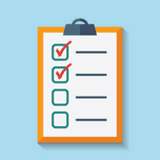News and Updates
Burnout and stress 101: Finding balance with mindfulness
Authors: Janet Pun (Psychological Health and Safety Advisor), Tara Achkar (Mental Fitness Coach)
In today's fast-paced world, it's no surprise that burnout and stress are common challenges millions face. As society places increasing demands on our time, energy, and mental capacity, many feel drained, unfulfilled, and overwhelmed.
In this article, we'll get into the complexities of burnout and stress and discuss how mindfulness can pave the way to enhanced well-being.
Burnout: Beyond Simple Fatigue
Burnout is a state of emotional, physical, and mental exhaustion caused by excessive and prolonged stress. Often manifesting in the workplace, it arises when people feel overwhelmed, emotionally drained, and unable to meet constant demands. Common symptoms include:
-
Loss of motivation or passion
-
Feelings of cynicism or detachment
-
Reduced performance and productivity
-
Chronic fatigue and physical ailments
While burnout may appear as a work-related phenomenon, it can seep into all areas of life, including our relationships, hobbies, and home life.
Stress: A Double-Edged Sword
Stress, when harnessed correctly, can push us to achieve our goals or make decisions. However, when day-to-day challenges trigger chronic stress without reprieve, it can deeply impact your overall well-being, including:
-
Weakening of the immune system
-
Sleep problems
-
Depression, anxiety, or mood swings
-
Physical problems
Mindfulness: The Secret Tool to Balance and Peace
Mindfulness is about deliberately focusing on the present moment without judgment. Rooted in Buddhist traditions, mindfulness has garnered significant attention in the world of psychology and wellness. Here's how it can combat burnout and stress:

Getting Started with Mindfulness
Embracing mindfulness doesn't necessarily mean spending hours meditating. Here are some simple ways to incorporate it into your daily life:
-
Mindful Breathing: Spend a few minutes focusing solely on your breath. Observe the rise and fall of your chest, the sensation of air entering and leaving your nostrils.
-
Mindful Eating: Pay attention to the taste, texture, and aroma of your food. Chew slowly and savour each bite.
-
Walking Meditation: While walking, be fully present. Notice the sensation of your feet touching the ground and the rhythm of your steps.
-
Body Scan: Lie down and mentally scan your body from head to toe, observing any tension or discomfort.
-
Guided Meditations: Use apps or online programs like Starling Minds and gain access to guided meditation sessions tailored to your needs.
While burnout and chronic stress are prevailing issues in our busy lives, solutions exist. Mindfulness continues to be adopted within the science community because it provides a practical and effective approach to regaining balance, focus, and inner peace.
In partnership with leading mental health experts, we are proud to provide our members and customers with FREE access to meaningful evidence-based wellness programs.
Starling Minds is a self-guided digital program that provides tools to help manage and improve your mental fitness. Learn how to integrate practical strategies into your daily life to better manage stress, anxiety, burnout, and depression. Ready to practice mindfulness? Log in or register at otipraeo.starlingminds.com.





